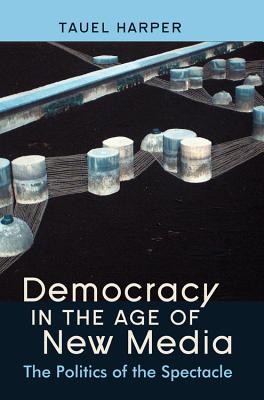
- We will send in 10–14 business days.
- Author: Tauel Harper
- Publisher: Peter Lang Inc., International Academic Publishers
- ISBN-10: 1433109107
- ISBN-13: 9781433109102
- Format: 15 x 22.4 x 1 cm, softcover
- Language: English
- SAVE -10% with code: EXTRA
Democracy in the Age of New Media; The Politics of the Spectacle (e-book) (used book) | bookbook.eu
Reviews
Description
In the age of the spectacle, democracy has never looked so bleak. Our world, saturated with media and marketing, endlessly confronts us with spectacles vying for our attention: from Apple and 9/11 to Facebook and the global financial crisis. Democratic politics, by comparison, remain far from engaging. A society obsessed with spectacles results in a complete misfiring of the democratic system.
This book uses critical democratic theory to outline the effects of consumer culture on citizenship. It highlights the importance that public space plays in creating the critical culture necessary for a healthy democracy, and outlines how contemporary 'public' spaces - shopping centres, the Internet, social networking sites and suburban communities - contribute to this culture. Terrorism, ecological destruction and the financial crisis are also outlined as symptoms of the politics of the spectacle. The book concludes with some basic principles and novel suggestions which could be employed to avoid the pitfalls inherent in our spectacular existence.
EXTRA 10 % discount with code: EXTRA
The promotion ends in 17d.18:15:32
The discount code is valid when purchasing from 10 €. Discounts do not stack.
- Author: Tauel Harper
- Publisher: Peter Lang Inc., International Academic Publishers
- ISBN-10: 1433109107
- ISBN-13: 9781433109102
- Format: 15 x 22.4 x 1 cm, softcover
- Language: English English
In the age of the spectacle, democracy has never looked so bleak. Our world, saturated with media and marketing, endlessly confronts us with spectacles vying for our attention: from Apple and 9/11 to Facebook and the global financial crisis. Democratic politics, by comparison, remain far from engaging. A society obsessed with spectacles results in a complete misfiring of the democratic system.
This book uses critical democratic theory to outline the effects of consumer culture on citizenship. It highlights the importance that public space plays in creating the critical culture necessary for a healthy democracy, and outlines how contemporary 'public' spaces - shopping centres, the Internet, social networking sites and suburban communities - contribute to this culture. Terrorism, ecological destruction and the financial crisis are also outlined as symptoms of the politics of the spectacle. The book concludes with some basic principles and novel suggestions which could be employed to avoid the pitfalls inherent in our spectacular existence.


Reviews